Packet Tracer Labs
Check a variety of free packet tracer labs at the bottom of the page. You will find labs on different topics like packet tracer Vlan labs, routing labs, etc. Let’s get started with the packet tracer beginner labs.
Packet tracer labs provide a variety of lab exercises that run on the Packet Tracer software. With our labs, you can practice as well as prepare for your Cisco certifications quite easily.
Basic Packet Tracer Labs
Router Labs
Setting up router name and passwords
Configure and troubleshoot EIGRP
Switch Labs
Telnet Labs
Setting up telnet, MOTD banner, etc
Security Labs
Static Routing Labs
RIP Protocol Labs
VLAN Labs
NAT Labs
WAN Connection Labs
CDP Labs
Backup and Restore
Others
Packet tracer Troubleshooting Labs
Ping Troubleshooting
Lab 1
PCs are unable to ping each other.
Troubleshoot the issue.
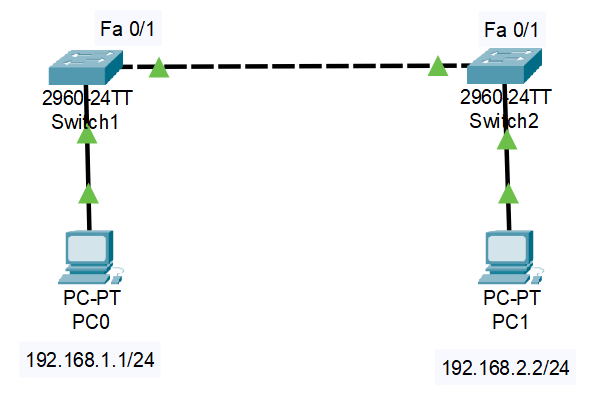
Lab 2
We are unable to ping between PCs.
Troubleshoot the pinging issue.
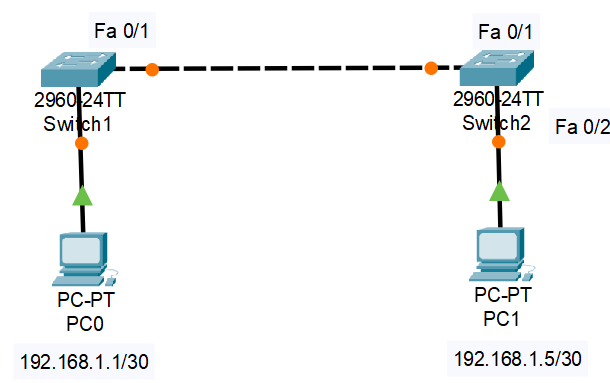
Lab 3
Host 192.168.3.2 is unable to ping the 192.168.4.2 host.
Troubleshoot the issue.
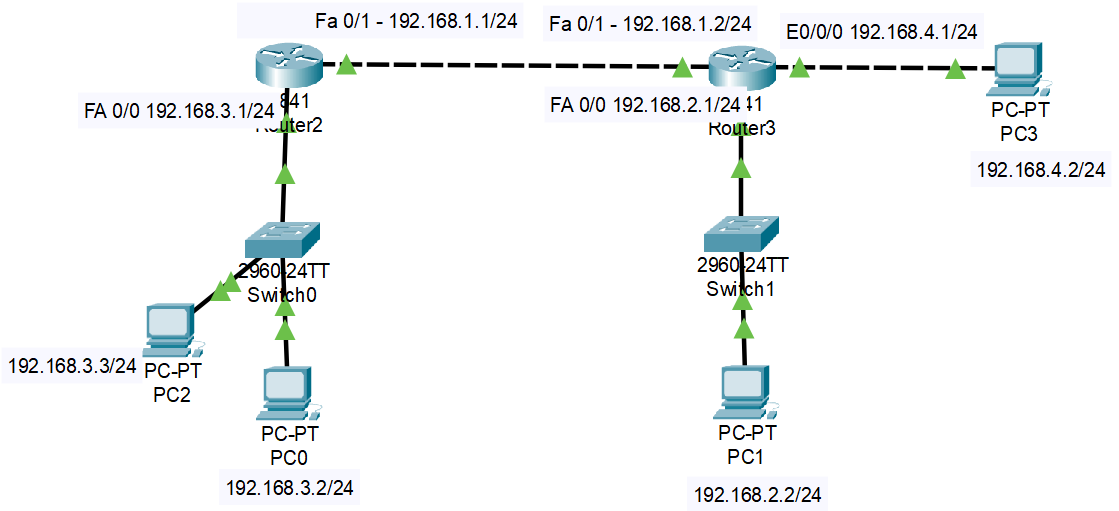
Lab 4
The link is down between the two devices.
The link should be up and working.

Lab 5
PC is unable to establish connectivity with the Switch.
Your task is to detect the issue and fix it so the link between the two devices must be up and working.
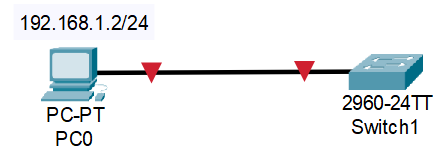
Telnet Troubleshooting Lab
Lab 6
We have configured the password on the vty line but when we telnet from PC the router is not prompting for the password.
Troubleshoot the issue so the router should ask for the password before allowing a telnet connection.

Routing Troubleshooting Lab
Lab 7
A static route is configured on router 2 to reach router 3, We can ping network 192.168.3.0 from router 2
however, we are unable to ping network 192.168.3.0 from PC.
Figure out the issue so that we can ping the network 192.168.3.0 from the PC.

Lab 8
We are unable to telnet the router from the PC.
Troubleshoot the telnet issue

Lab 9
A static route is configured on router 2 to reach network 192.168.4.0
We are unable to ping the network 192.168.4.0 from router 2
We are getting unreachable responses while pinging.
Troubleshoot the issue so that we can ping the network 192.168.4.0

Rip Troubleshooting Lab
Lab 10
Rip protocol is configured on both routers however we are unable to ping PC2 from PC0

Click here for solutions and to try more labs
Packet Tracer is amazing software in terms of what it allows us to do. It helps us to configure routers, switches and build network topologies quite conveniently using the simulated command line interface that in turn prepare us for the Cisco certification exam. Even if you want to prepare for any exam other than Cisco’s you can still practice making labs with different network topologies and configure all types of network devices in a Packet Tracer.
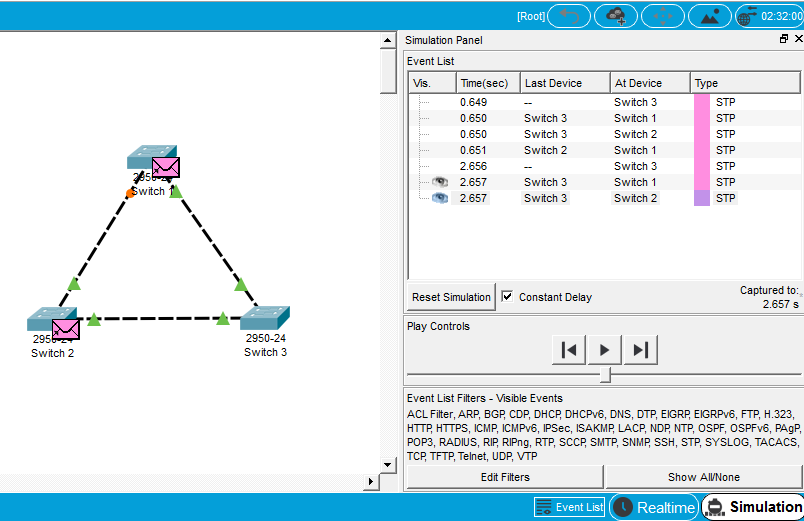
Another unique feature that Packet Tracer provides is that it let us trace different types of packets while they travel in the network. This functionality offers very important element when troubleshooting for any issues because as we trace the packets in a simulation mode we can see exactly how the traffic is moving i.e. ascertain where the packets are getting dropped. In it, we can also see that how each kind of packet moves and how the traffic is generated by different types of network devices in operational network.
In the simulation mode, packet tracer also acts as the packet sniffer so we can check what information is included in the packet. This feature is very useful for deeper analysis and advanced troubleshooting of the network issues.
A Cisco certification exam consists of a variety of networking questionnaires that examinees are required to answer correctly. So, in order to pass the exam it is essential to have a good understanding of the entire networking terminology and devices. In essence, you need the expertise on how to configure and troubleshoot Cisco devices for various issues.
A CCNA exam also includes some real tricky questions in which examinees have to troubleshoot the issues after looking at the given configuration. So if your concepts are not clear then it becomes very difficult to understand the question let alone troubleshooting the issues to be able to answer such questions correctly. And as a result, you may use up a lot of your time in attempting those questions. This could seriously impact your overall time management skills that you plan for your Cisco examination. As important as it sounds, proper utilization of your time is absolutely necessary to attempt all the questions and to finish your exam on time. Hence, it is best to practice for your exam in advance; and train as much as possible using practice questions and practical labs. Then, when you clear all your concepts and feel confident about yourself you can finalize your exam date.
When you use the labs from our website to practice and prepare for your Cisco exam, it would help you strengthen all essential networking concepts that are required to successfully pass your Cisco certification. It will increase your self confidence in addition to the training practice you receive.
To begin your preparation, you are required to have Packet Tracer software installed on your system to run these labs. You can download Packet Tracer from Cisco’s official website. And once it is up and running, you can start configuring Cisco devices and create network topologies in your computer using the Packet Tracer software.
We have designed these labs from beginner to intermediate and advanced levels; we would also continue to add more labs from time to time as needed.